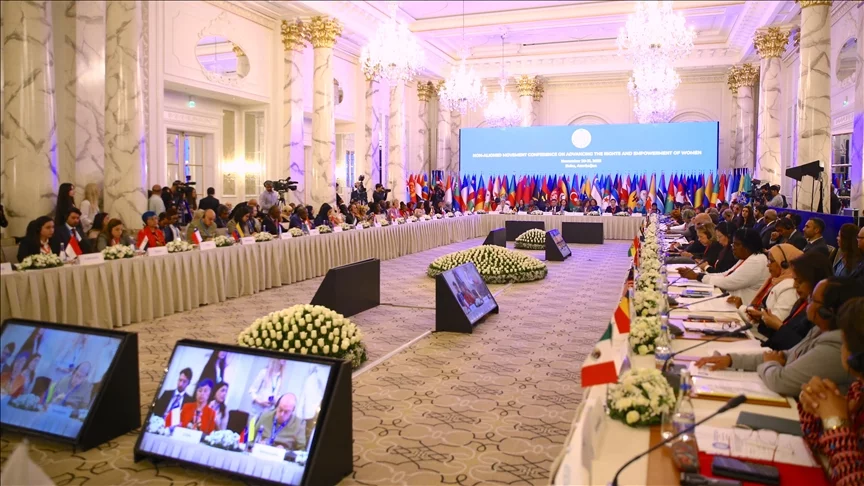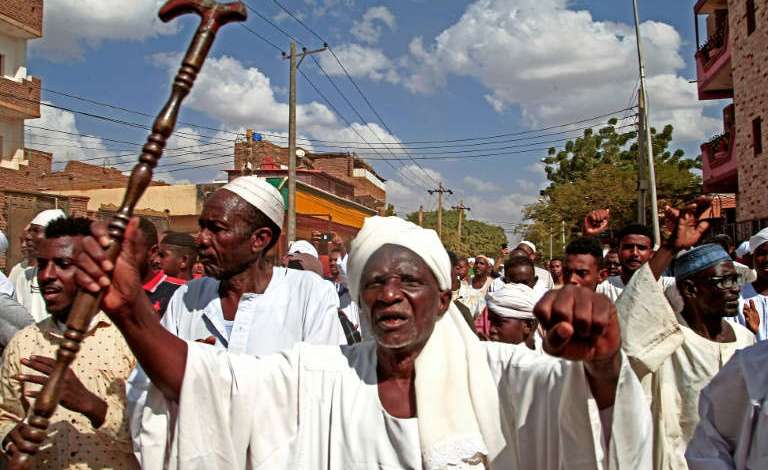THE 19th Non-Aligned Movement summit in Kampala grapples with global tensions as leaders discuss the organisation’s relevance. The event also sets the stage for the Third South Summit, addressing economic cooperation among the Group of 77 developing countries

LEADERS of non-aligned countries meet for their 19th summit in Kampala this week (January 15-20) in the midst of global crises that are testing the resolve of non-alignment.
Established in 1961, the Non-Aligned Movement (NAM) is a grouping of 120 mostly developing countries that are supposed to work together to advance shared interests.
The theme of the Kampala gathering is apt: Deepening Cooperation for Shared Global Affluence.
But, given the conflicts in Ukraine and Gaza, battle lines appear to have been drawn although NAM leaders are attempting to focus on ‘pressing global issues and foster cooperation among member nations,’ according to the organising committee in Kampala.
This polarisation of the current global political system was one of the issues raised by experts at a consultative forum in Nairobi last month on the role of NAM in peace and security, especially in East Africa.
What was not lost on the experts, was the complexity of NAM’s relevance in the ‘contemporary geopolitical setting, especially as the world is regrouping geopolitically’.
They noted that there was ‘the need to amplify NAM’s voice in addressing emerging global issues and inequalities’.
The experts acknowledged that there were limitations to NAM’s ability to ‘reach consensus on critical issues like nuclear disarmament reflecting ongoing unresolved matters within NAM, the impact of chairmanship transitions, and the return of Non-Alignment 2.0
amid complex world issues’.
They suggested that if NAM was to be more relevant today it needed to ‘be more proactive in dealing with emerging global issues such as climate change, global health challenges, cyber security, human trafficking, and refugee and migrant crises’.
‘By contributing its voice and active engagement in these areas, NAM will be able to adopt a multifaceted approach in tackling peace and security, broadening its participation from its confined areas of engagement in conflict and small arms, for example,’ the experts agreed.
They noted that one reason why NAM’s role in global matters was weak was due to the ‘absence of a functional secretariat’.
‘Creating a strong NAM Secretariat will strengthen the organisation from within,’ the experts said.
‘This will in turn give NAM a strong voice on global issues such as the emerging wars in Ukraine and the Israel/Palestinian conflict, as well as lead in South-South dialogues and cooperation.’
Despite Uganda’s great fanfare relating to hosting NAM, experts at the Nairobi consultative forum recognised that the grouping ‘remains largely unknown within most African states, especially at the citizenry or grassroots level’.
They called for a ‘bottom-up approach in terms of raising awareness and disseminating knowledge of [NAM’s] activities and broadening participation within the organisation’.
This would involve engaging with civil society groups, political parties and the private sector to help in encouraging community participation and also act as observers within NAM forums.
Women were also to be encouraged to be more involved in NAM activities, particularly in peace and security matters given the increasing role of women in disarmament and as peace
ambassadors within conflict zones in Africa.
With 44 NAM members also members of the Commonwealth, its Secretary-General, Patricia Scotland will attend the Heads of State Summit from 19 to 20 January as a special guest of the Ugandan government.
She said: ‘Many developing countries have made considerable progress to improve the well-being of their people.
‘But they are now bearing the brunt of a myriad of crises, with the lingering effects of Covid-19, soaring debt, inflation pressures and intensifying climate extremes and disasters.
‘The absence of adequate international support forces them to commit more of their limited resources into protecting their people from these crises, which further compounds their challenges, eroding hard-earned progress on poverty, inequality and development, and is pushing many countries to the edge.’
Scotland added: ‘To tackle these overlapping challenges, we need more cooperation and solidarity than ever before.
‘The voice of the Non-Aligned Movement is essential, and the Commonwealth stands as a trusted partner in achieving our shared vision for a peaceful, just and sustainable future for all.’
Later, from January 21 to 23, Uganda will also host the Third South Summit, the supreme decision-making body of the Group of 77 (G-77) developing countries, which was established on June 15, 1964.
Although the members of the G-77 have increased to 135 countries, the original name was retained due to its historic significance.
As the largest coalition of developing countries in the UN, the G-77 provides the means for the South to articulate and promote its collective economic interests and enhance its joint negotiating capacity on all major international economic issues in the UN system, including South-South cooperation.
The first and the second south summits were held in Havana, Cuba, in April 2000 and in Doha, Qatar, in June 2005.
In accordance with the principle of geographical rotation, Uganda is hosting the third summit.
With the theme, Leaving No One Behind, the organisers say the summit will look to ‘bring a new dynamic to the cooperation’ among G-77 members ‘in a more competitive world’.













